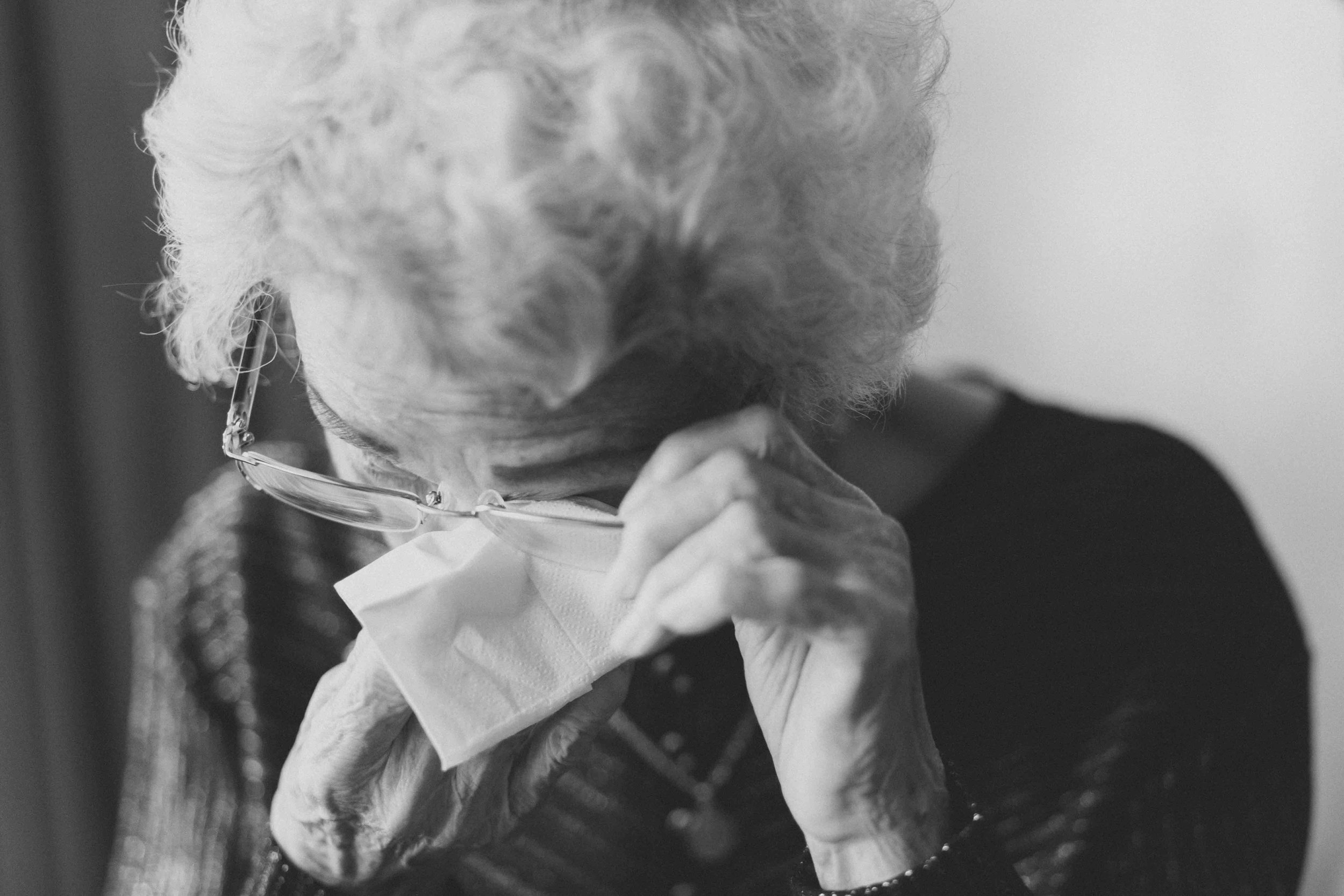The grief of disability caregiving almost overwhelmed me this autumn.
First, my Aunt Donna, an oasis of security and love during my childhood, died. Grief over Donna's death was accompanied by grief for my mother. She's the elder sister by six years, has lived with dementia since 2008, and longs to join loved ones who died before her: our dad, her parents, and her seven siblings.
"Why do I have to live so long?" Mom asked when she learned of Donna's death. Her look of despair broke my heart.
Photo by Jeremy Wong on Unsplash
A few weeks later, Mom's long-term care facility called to report a fall. A few days later, she fell again. She had no broken bones. No bruises. However, she was livid about the change of routine due to measures instituted to keep her safe.
"They're trying to take over my body. No one should have to live like this," she often tells me. And my heart breaks every time.
My brother and I asked Hospice to evaluate Mom.
When the hospice nurse reported that she was not even close to qualifying, my heart broke wide open. I cried for my mother, who has months, perhaps years, of diminishing life ahead.
How will she endure it?
How will I endure it?
I cried for myself as well. The grief of disability caregiving, the enormity of what lies ahead, overwhelmed and threatened to break me as it had broken my heart.
None of the truths that had sustained me in my previous caregiving roles—daughter of a disabled father, mother of a medically fragile baby—assuaged my grief.
Not “God is sovereign”. Not particularly comforting when my mother begs to die.
Not to “treasure all the days of her life”. That sounds like a soap opera.
Not “God is pleased with your love and care for her”. Despite my love, she is desperately unhappy.
Not “this is only a season”. But how do I endure it?
Only then do I remember something a friend told me long ago. We both had medically fragile children. Her daughter, Lacey, would require a lifetime of caregiving. My son would not.
My friend acknowledged her grief and the lifetime of caregiving ahead. "If I think about how to deal with what Lacey will be like at age 5 or 10 or 20 or 30, I miss out on the Lacey I have today. While my husband and I do plan for Lacey's future, my main focus is to be present with Lacey today. I focus on today."
Focus on today.
Today's decline.
Today's visit.
Today's small triumphs.
Today's tasks.
Today's grief.
Today's broken heart.
Today's joy.
As I focused on today's provision and comfort in Christ, the Spirit brought a Scripture passage to mind. He nudged me to pray this passage for myself and my mother each morning for the rest of her todays.
You can pray for yourself and the children in your care—for all of the todays remaining for them as well.
For while we are still in this tent, we groan, being burdened—
not that we would be unclothed, but that we would be further clothed,
so that which is mortal may be swallowed up by life.
He who has prepared us for this very thing is God,
who has given us the Spirit as a guarantee?
So we are always of good courage.
We know that while we are at home in the body, we are away from the Lord,
for walk by faith, not by sight.
Yes, we are of good courage,
and we would rather be away from the body and at home with the Lord.
So whether we are at home or away, we make it our aim to please him.
2 Corinthians 5:4–9
Jolene Philo is the author of several books for the caregiving community. She speaks at parenting and special needs conferences around the country. She's also the creator and host of the Different Dream website. Sharing Love Abundantly With Special Needs Families: The 5 Love Languages® for Parents Raising Children with Disabilities, which she co-authored with Dr. Gary Chapman, was released in August of 2019 and is available at local bookstores, their bookstore website, and Amazon. See Jane Sing!, the second book in the West River cozy mystery series, which features characters affected by disability, was released in November of 2022.





